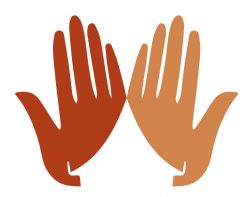Listen to the talk and meditation here or read the article below.
Sometimes it is good to take a step back from life and see what is causing you the most difficulty. When we mostly do this, however, we tend to look at the things that are outside of us. We look at the things that cause us difficulty from the perspective of things happening to us. It is very easy to home in on those things that happen to us in this way. Essentially laying blame.
When we take this course of action, we then start to think about how we can change these things or remove them from our lives in some way. As we start to practise mindfulness we begin to realise that working in this way, rarely gives us the results we are looking for.
Usually, the things we try to change will resist us or ignore us.
One of the clearest places where we see this is with our relationships with people. Us humans are infinitely complex. When you put two of those individually complex people together it is impossible to predict how things are going to turn out. But, we tend to try to lay our own expectations on to others. We meet someone new and we immediately start to make assumptions about how we think they should be. It is pretty obvious that this tactic is not going to work for us. We need to find another way. So, we turn towards ourselves and this is hat Buddhist practise concentrates on. We look at our selves and understand how we react to the things that happen to us. It is here where we discover our suffering.
This is not an easy journey. But we do have things that can help us on this journey. Habit is one of these.
Habit is in every aspect of our lives. It is buried in our physical movement and it is buried in the way we think and the way we react to things. When we first consider habit, we tend to focus on those habits that make the papers! Alcoholism or drug addiction for example. But habit is present in us all the time. Some of it has been generously given to us by our parents or by society itself. Some of it we have cultivated by ourselves. It isn’t necessarily bad. For example, most of us, when given something, say ‘thank you’.
Our habits feed our emotions. This is why they are so powerful. I remember a train journey once. I was having a particularly mindful journey and when I was approaching the destination I just dwelt on the experience and realised that I had felt a number of emotions. Sadness, anger and joy were all there. I started to think about what had caused them. They were all triggered by images outside of the train window. A field of cows in the sunshine had triggered joy, a smelly old power station had triggered sadness and some graffiti on a wall had triggered anger. I consider these and realised that these emotions were largely implanted there by the society I lived in. Actually, the graffiti was rather good. But my upbringing and developed an emotional reaction of anger.
So I discovered that actually some of my emotional reactions, in a way, weren’t mine. They’d started as someone else and had been passed on to me. Finding these types of inbuilt habit can give us a great deal of insight into our lives and they way we tick. They can also, of course teach us why we suffer.
Where does habit start? In the mind of course. What else is there? Even physical habit. A rock does not have any habits because it doesn’t have a mind. We do. If we develop a tight, intense mind that always responds to situations in life with conflict and a tense nature, this will reflect in our bodies.
So where in our mind does this reside? I have often painted the picture of our mind consisting of 3 parts. Memory, Manas and the Gardener, where the gardener is able to quietly watch memory and the manas at work. Habit, of course, sits in memory. Memory isn’t just the picture book stuff that we are consciously aware of. But it is also sitting in our subconscious. The subconscious store is a great deal larger. We have our religious beliefs in here. Our deep prejudices. And our habit.
So how can we possibly work on this?
Well, the truth is, we are always working on our subconscious mind but usually we are not doing this deliberately. Think of this as a field. We are watering and nurturing some of the plants in the field and letting others wither and die. We can either do this with care and attention. Choosing which plants to nourish. Or we can just water the field in a haphazard way. If we do this, the natural dips and troughs in the field will choose where the water runs too and the plants in this area of the field will flourish. If we don’t watch our minds, they absolutely do this. Those thoughts that get the most nourishment will flourish even more. Lo and behold, the field of the mind has dips and ruts. This is habit! So our way to handle this is to notice. To do that, we have to mind watch. We have to observe our minds at work, noticing where habit is potentially influencing us. Some of this will need a great sense of honesty and a real desire to change. Otherwise it will feel like we are “going against the grain” and we will allow our stubborn mind to either reject any potential noticing or ignore it all together.
So, start with resolve. Set out your intent each day to stay with the practise and notice. Even this, settles down in to the subconscious. We are sending a message deep in to our minds to stay with this. This is why, at the start of meditation, I always ask you to set yourself a clear intent to stay with the practise. Then, during the day, Work it backwards and forwards. Remember the Buddha’s words.
“Out of thought, arise words, words become actions. Actions develop into habit and habit hardens into character”
Well, by noticing this process actually going on in our selves we can start to change our character and unravel some of that habit. Notice both ends on this chain going on in your day. Take an objective view and see yourself. See the character you have and see the thoughts that are nourishing that. Ask yourself if that aspect of your character and those thoughts that are nourishing it are wholesome for both you and others. Notice the fine-grain and the gross here. The fine grain, only you may be aware of. The subtleties of your character that others won’t necessarily be able to see. The gross, those large aspects of our character that are very visible to others. Generally, you will find that these are feeding off each other. See that process going on.
This mind watching, itself, needs to come from habit. So that we actually remember to do it.
Here is where meditation comes in. This develops the habit of mind watching.
So the most powerful approach here is just-sitting.
We will develop a sense of concentration using the breath and then come into a period of just sitting. Noticing the mental objects that emerge. This is our teacher.

